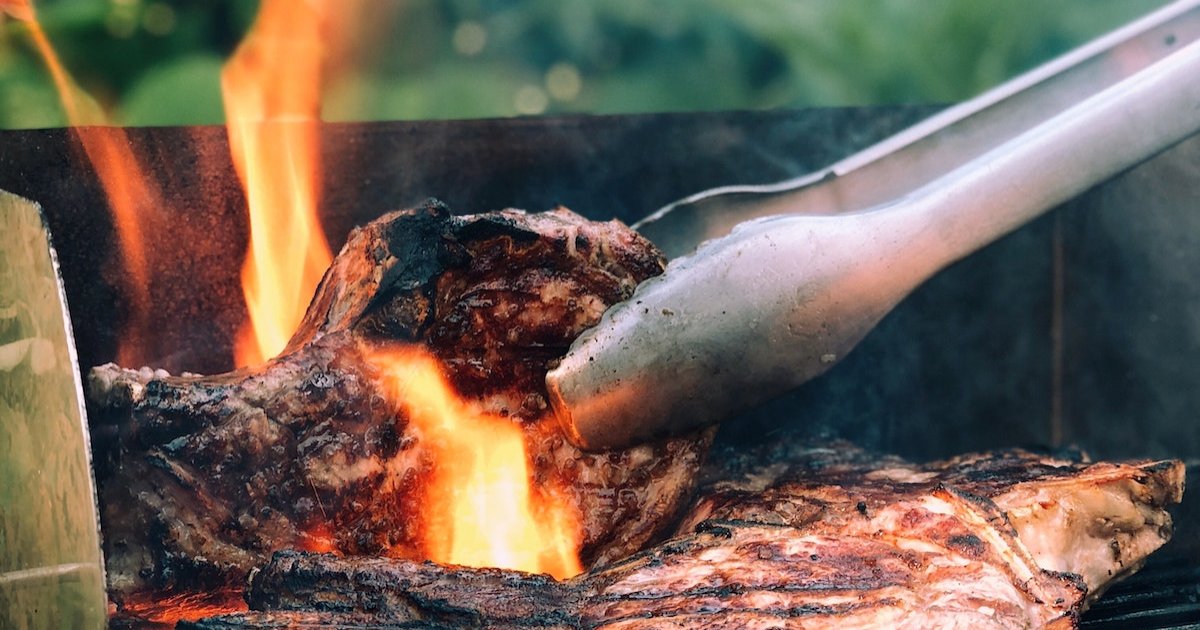Grilling & Cancer
- Grilling may be linked to increased cancer risk due to carcinogens in the char that develops on the grill. Carcinogens found in many products can increase your risk of developing cancer.
- Eating meat doesn’t directly cause cancer, but overcooking these meats (particularly on the grill) and eating them in large quantities can increase inflammation.
- Experts have told SurvivorNet that it’s important everyone uses moderation and practices a healthy diet in order to decrease their risk of cancer.
It’s been a long time myth that eating meat, particularly red meat, is directly linked to your risk of developing cancer. While a healthy diet is certainly important for cancer prevention, it’s important to remember that meat in and of itself is not the enemy. However, studies have shown that grilling may actually be linked to increased cancer risk due to carcinogens being formed.
Read MoreDr. Stephen Freedland explains the link between cooked meats and cancer risk
“If you want to eat your steak, to me, that’s fine, [but] you want to ensure it’s not overcooked, because the way we process the meat, cook it, and create those charred lines, that can actually cause cancer as well,” Dr. Stephen Freedland, director of the Center for Integrated Research in Cancer and Lifestyle at Cedars-Sinai, previously told SurvivorNet. “So I think this concept that animal meat is the enemy and is awful is not true. I think part of the problem is how we process the meat, how we cook the meat, what we eat with the meat.”
The American Institute for Cancer Research suggests these tips when grilling out:
1. Marinate: Studies suggest that marinating meat before grilling can decrease formation of carcinogens.
2. Pre-Cook: If you are grilling larger cuts, you can reduce the time your meat is exposed to flame by partially cooking it in a microwave, oven or stove first.
3. Go Lean: Trimming the fat off your meat can reduce flare-ups and charring. Cook your meat in the center of the grill and make sure to flip frequently.
4. Mix It Up: Cutting meat into smaller portions and mixing them with vegetables can shorten cooking time.
5. Go Green: Grilling of vegetables and fruits produces no carcinogens.
Diet & Cancer Prevention
When it comes to trying to prevent a cancer diagnosis, there are a few factors to consider. Making sure we are healthy is important for our everyday lives, and that means prioritizing a healthy diet and consistently being active. Although there's been no scientific evidence to prove a certain diet or amount of exercise causes or prevents cancer, there is a definite link. For example, among the women who exercised regularly, their risk of being diagnosed with breast cancer dropped by 12%.
As for diet, it’s recommended to practice moderation as much as possible. Cancer risk can be linked to consuming high amounts of sugar, carbs, and overcooked processed meats. That’s why it’s important to balance your cravings with nutritious foods such as dark green, red and orange vegetables, fruits, and whole grains. By making sure you eat a balanced diet, this can decrease inflammation which is often associated with cancer risk.
“We want to look at things that are going to enhance your immune system and to also decrease the inflammation within your body,” Dr. Brian Berman, director of the Center for Integrative Medicine at the University of Maryland School of Medicine, previously told SurvivorNet. “If we wanted to create an unhealthy body, one that would promote cancer, we would follow the typical Western diet that we’ve all been growing up with over the years. We know that people with diabetes have a higher incidence of cancer…I’m asking you to do is to work with us, work with the nutritionists, and to look at ways that you can change that…it will make a profound difference in your health.”
Dr. Brian Berman explains how the food we eat can fight cancer
Learn more about SurvivorNet's rigorous medical review process.


